“The formation of a coalition of Western countries to jointly seize frozen Russian assets will significantly reduce risks,” advises expert Olena Halushka, co-founder of the International Victory Center and board member of the Ukrainian Anti-Corruption Action Center.
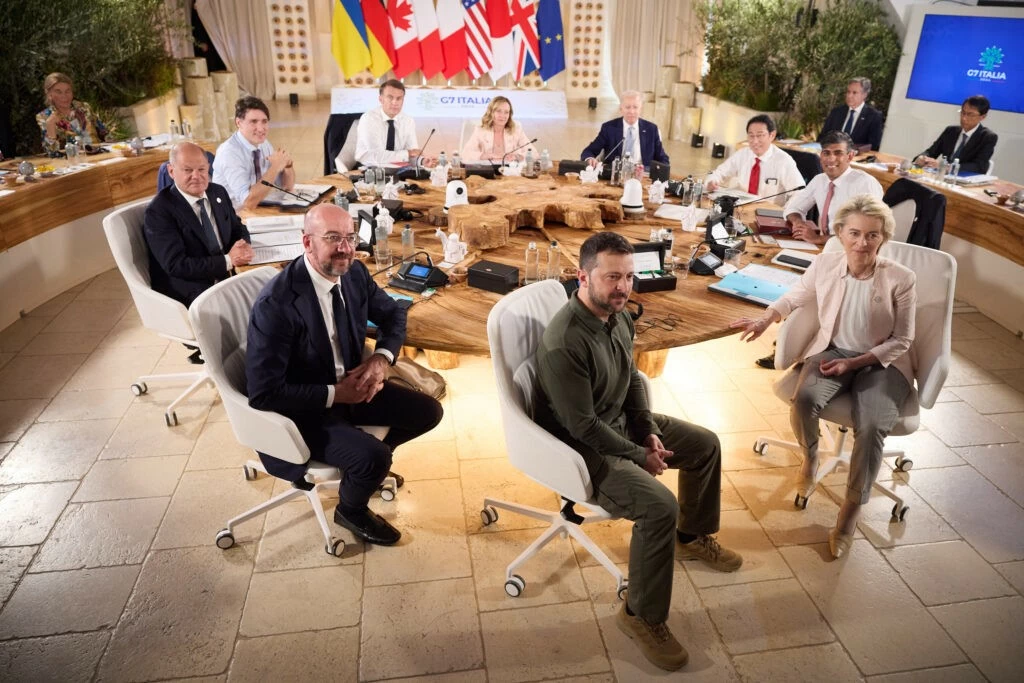 |
| At the Borgo Egnazia Summit in Italy (June 2024), G7 leaders agreed to lend Ukraine $50 billion from the interest earned on frozen Russian assets. (Source: atlanticcouncil.org) |
According to this consultancy, if all Western countries form a coalition to seize frozen Russian assets, this will help them eliminate all risks.
Explaining this approach to the media, Olena Halushka said, "When third countries object to the seizure of Russian assets, they often give several arguments. One of them is that the seizure of frozen Russian assets could prompt a shift away from the greenback. They would convert their foreign exchange reserves into another currency.
But then the question arises – to which currency will it be converted?... Currently, the majority of the world's reserve assets are in US dollars (59%), 20% are in euros, 5% are stored in Japanese yen, 5% in British pounds, Chinese yuan and the rest of the world's currencies account for 2% and 9% of global reserves respectively.
“We asked our Western partners, if the US, Europe, Japan and the UK act together, where will all these assets flow? It is clear that if there is a ‘G7 solution’, Switzerland and Australia will turn to them instead of China,” Olena Halushka analyzed.
Therefore, the expert from the International Victory Center of Ukraine concludes that it is unfounded to say that Western currencies will be affected.
According to Ms. Halushka's argument, Beijing's renminbi is not a reserve currency, because it is not freely convertible, and China's financial markets are not free, because there are attacks and pressure on domestic investors.
She also stressed that only the confiscation of a country’s assets could affect Western currencies. Then foreign exchange reserves could flow, for example, from dollars to euros. That is why Ukraine proposed that – a coalition should make the decision.
They (anti-confiscationists) say that many people might start selling their Western stocks, withdrawing their money and investing elsewhere. So again, back to the question - where?
In UAE, Saudi Arabia, Indonesia, China or Russia?
It is safe to say that Western financial markets are so strong and dominant that it is not easy to find a replacement for their reserve currencies and securities,” Olena Halushka is convinced.
In July, Saudi Arabia privately warned the G7 countries that it could divest some of its European debt obligations if the world’s leading developed economies moved to seize frozen Russian assets, saying it would not accept the seizure of $300 billion in frozen Russian assets intended to support Ukraine.
However, the latest move by the G7 and its partners (G7+) continues to demonstrate that they are firmly “behind” Ukraine, with US President Joe Biden announcing at a recent donor group meeting in New York that they had adopted a Joint Statement reaffirming unwavering international support for Kiev, now and in the future.
In addition to providing additional military , economic and humanitarian aid to the Eastern European country, the G7+ has strongly committed to helping Ukraine meet its urgent short-term financial needs, while supporting Ukraine's long-term recovery and reconstruction.
The US leader stressed that more than 30 countries, as well as the EU, had joined this historic declaration.
“We dispel any notion that time is on Russia’s side,” the joint statement reads. At the same time, the document goes on to note Russia’s responsibility – for this purpose, its sovereign assets in Western jurisdictions will be “frozen” until Moscow ends its military campaign and compensates Ukraine for the damage.
Ukraine’s partners are also continuing to implement the decision taken at the G7 Borgo Egnazia Summit to launch extraordinary revenue acceleration (ERA) loans to Ukraine by the end of this year, providing an additional $50 billion in financing. The loans will be repaid and repaid with future extraordinary revenue streams from “frozen” Russian assets in the EU and other relevant jurisdictions.
For its part, Ukraine must commit to reforms in the economy, judiciary, anti-corruption, corporate governance, defense, public administration, public investment management, and law enforcement.
"These reforms are necessary and will be crucial to support Ukraine's long-term reconstruction and recovery," the G7+ statement said.
Source: https://baoquocte.vn/chuyen-gia-ukraine-bay-cach-cho-phuong-tay-tich-thu-tai-san-nga-ma-khong-nga-rui-ro-288300.html


![[Photo] Close-up of Tang Long Bridge, Thu Duc City after repairing rutting](https://vphoto.vietnam.vn/thumb/1200x675/vietnam/resource/IMAGE/2025/5/19/086736d9d11f43198f5bd8d78df9bd41)
![[Photo] President Luong Cuong presents the 40-year Party membership badge to Chief of the Office of the President Le Khanh Hai](https://vphoto.vietnam.vn/thumb/1200x675/vietnam/resource/IMAGE/2025/5/19/a22bc55dd7bf4a2ab7e3958d32282c15)
![[Photo] General Secretary To Lam attends the conference to review 10 years of implementing Directive No. 05 of the Politburo and evaluate the results of implementing Regulation No. 09 of the Central Public Security Party Committee.](https://vphoto.vietnam.vn/thumb/1200x675/vietnam/resource/IMAGE/2025/5/19/2f44458c655a4403acd7929dbbfa5039)


![[Photo] Panorama of the Opening Ceremony of the 43rd Nhan Dan Newspaper National Table Tennis Championship](https://vphoto.vietnam.vn/thumb/1200x675/vietnam/resource/IMAGE/2025/5/19/5e22950340b941309280448198bcf1d9)
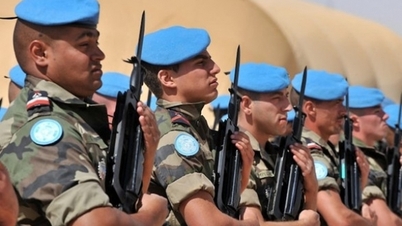
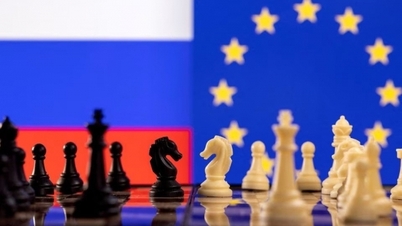

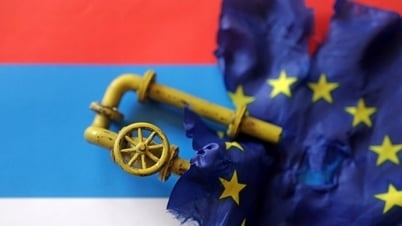


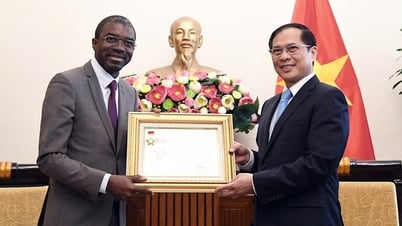

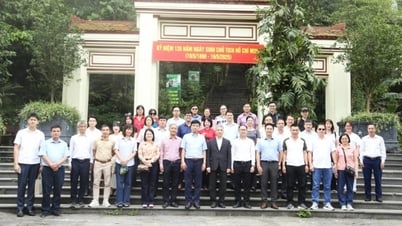
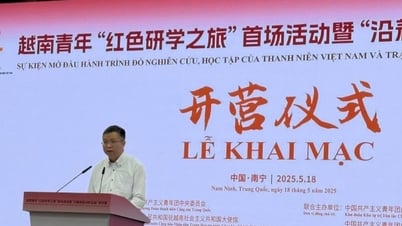
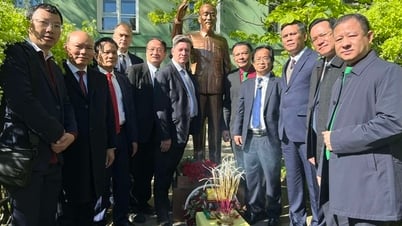
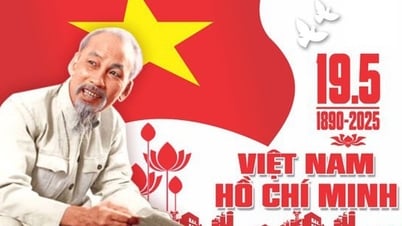
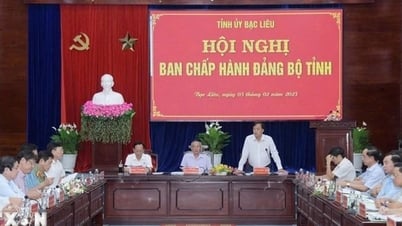




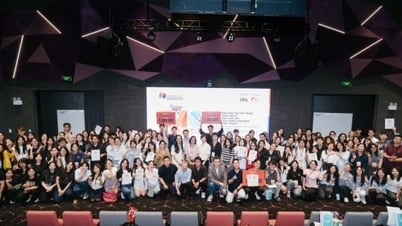





![[Photo] Prime Minister Pham Minh Chinh inspects the progress of the National Exhibition and Fair Center project](https://vphoto.vietnam.vn/thumb/1200x675/vietnam/resource/IMAGE/2025/5/19/35189ac8807140d897ad2b7d2583fbae)


















































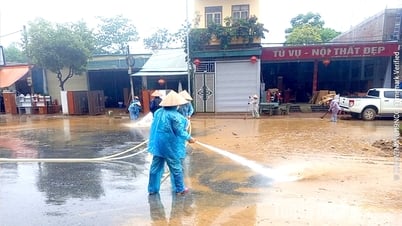

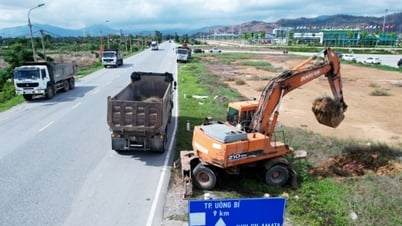

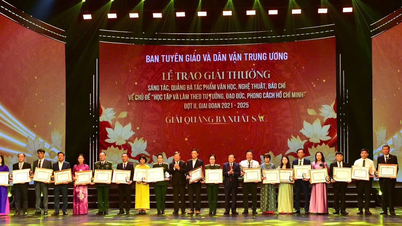







![[VIDEO] - Enhancing the value of Quang Nam OCOP products through trade connections](https://vphoto.vietnam.vn/thumb/402x226/vietnam/resource/IMAGE/2025/5/17/5be5b5fff1f14914986fad159097a677)



Comment (0)